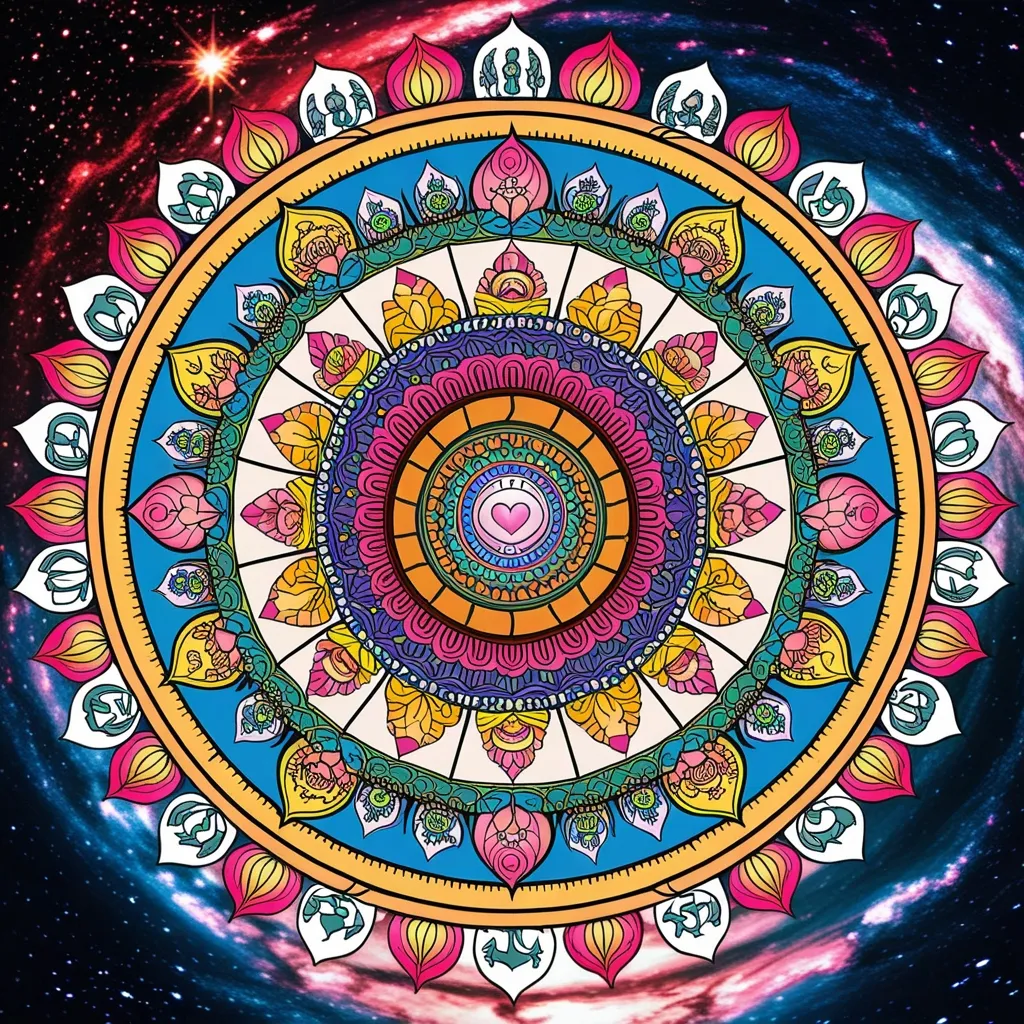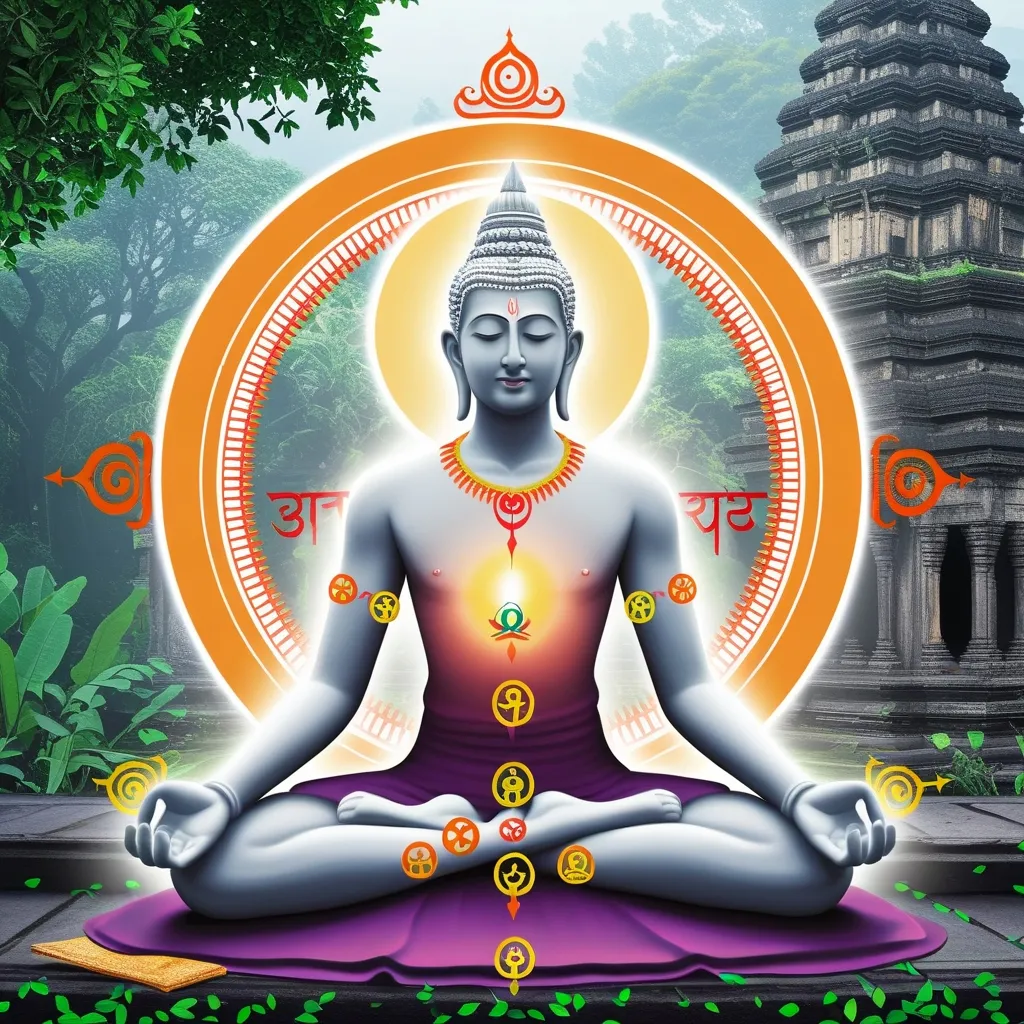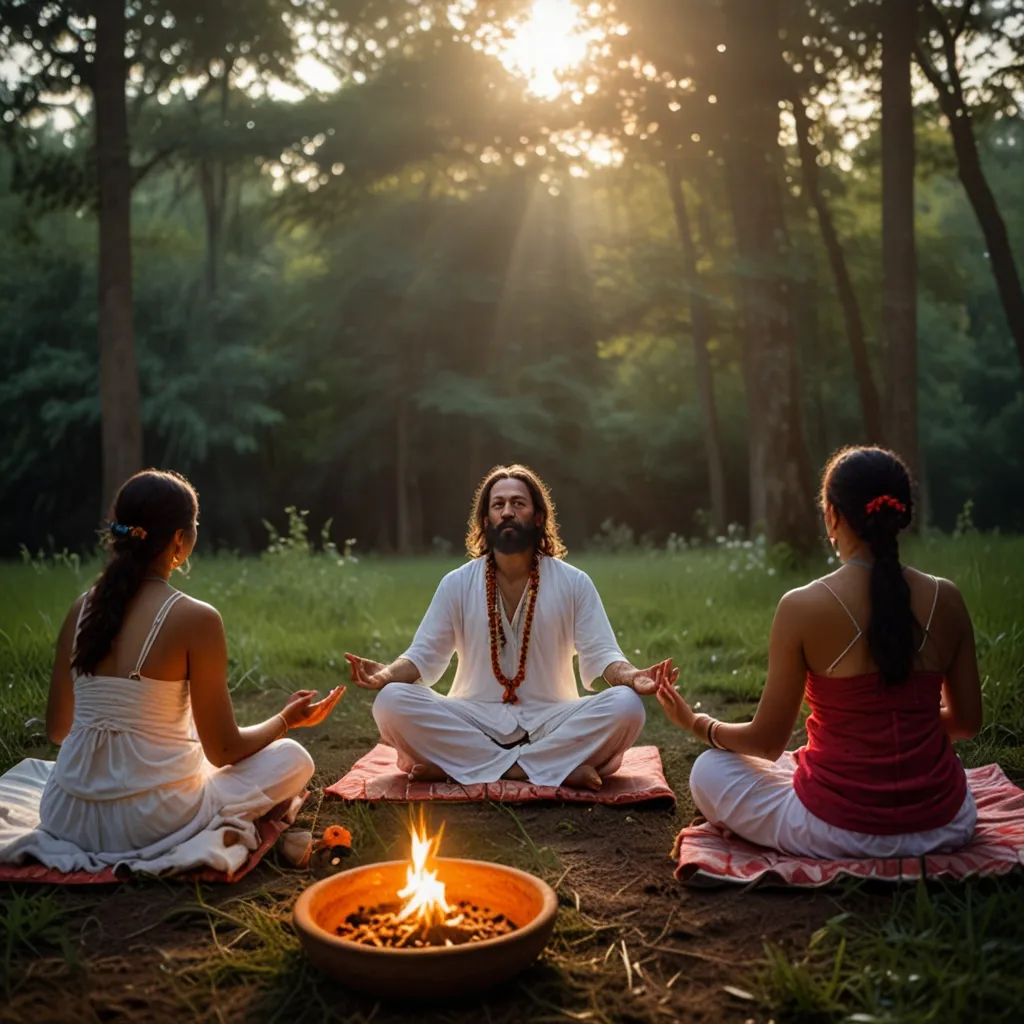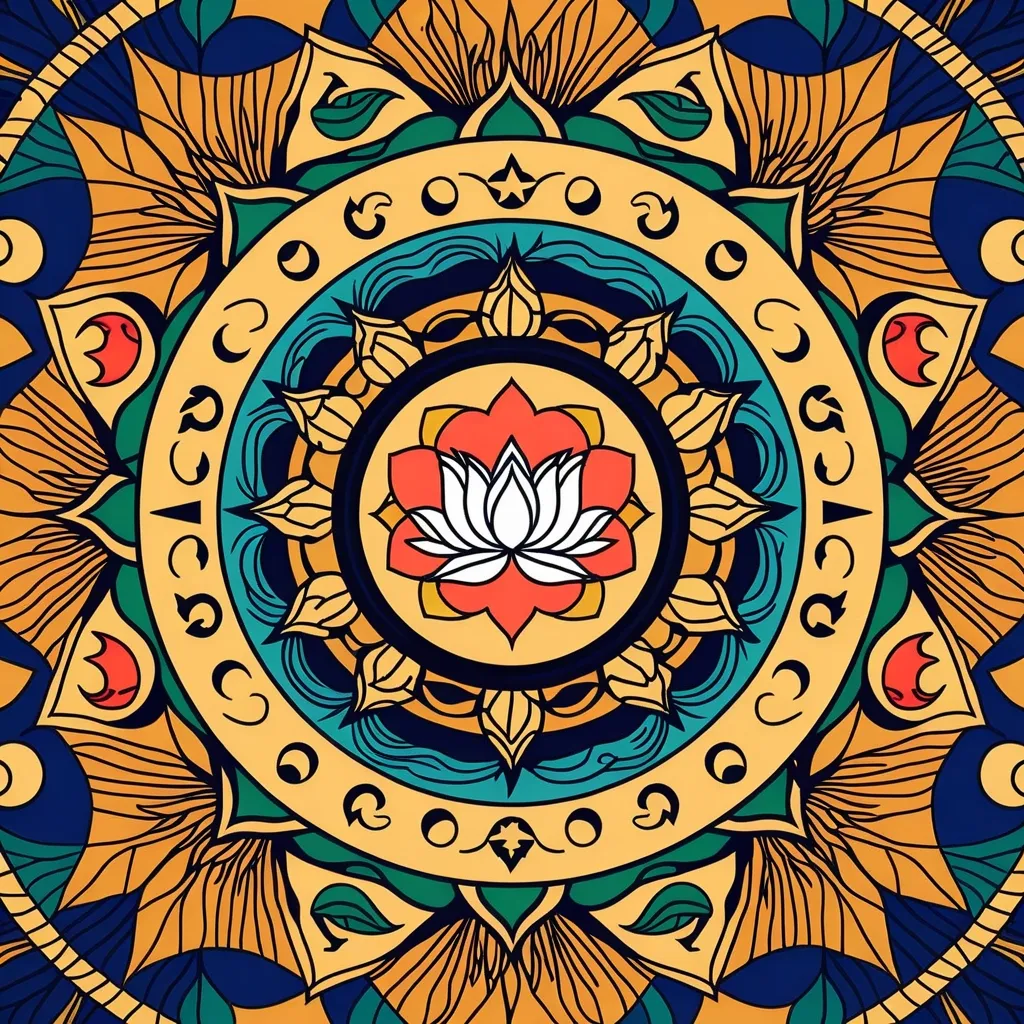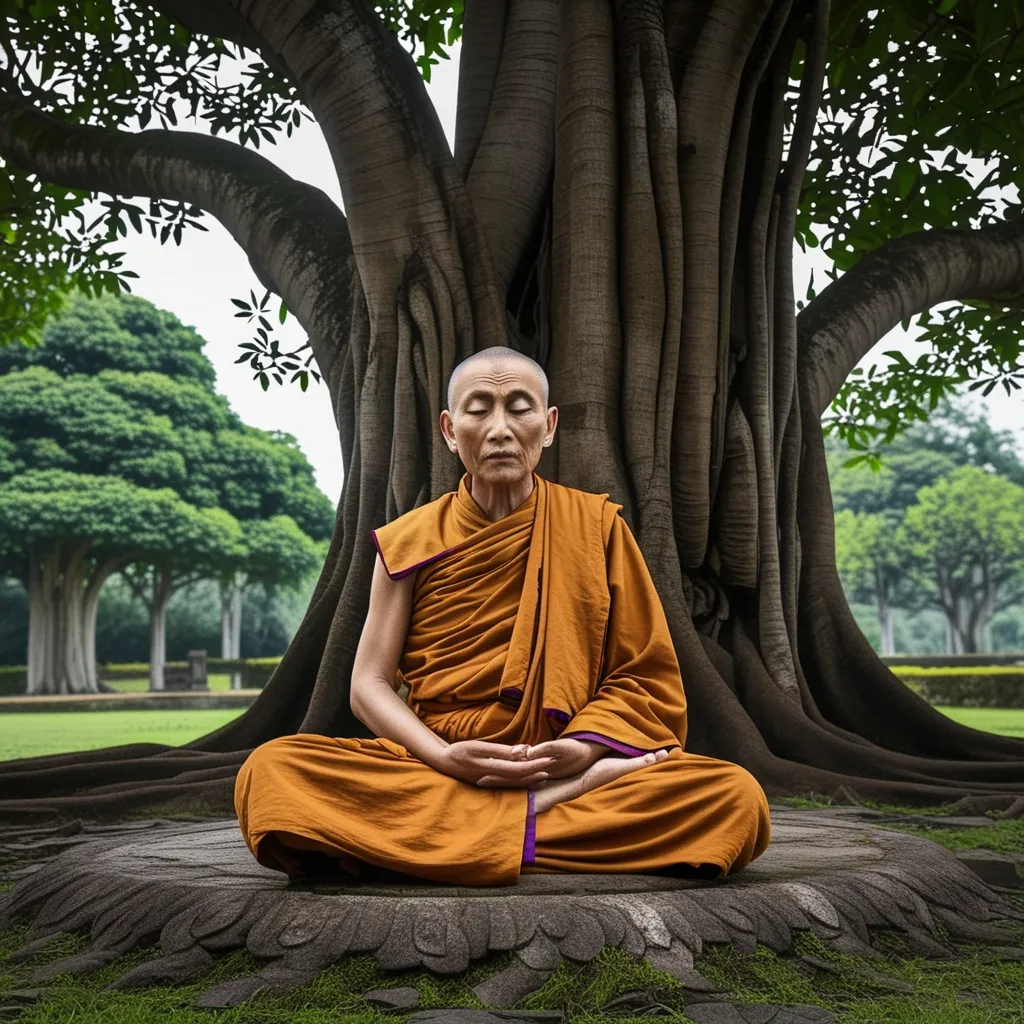Hinduism: A Tapestry of Ancient Wisdom and Timeless Traditions
Imagine stepping into a world where ancient wisdom meets modern life, where stories of gods and goddesses dance with profound philosophical insights. Welcome to the fascinating realm of Hinduism, one of the oldest and most diverse religions on Earth.
At the heart of this spiritual tradition lie the Vedas, sacred texts that have stood the test of time for over 3,500 years. These aren’t your average bedtime stories - they’re more like cosmic whispers caught by ancient sages during deep meditation. The Vedas are split into four main books, each packed with hymns, rituals, and mind-bending philosophical ideas.
Take the Rigveda, for example. It’s the granddaddy of all Vedas, filled with over a thousand hymns that priests used to chant during rituals. But don’t think it’s all just fancy words - these hymns dive deep into the nature of the universe and what it means to be human. It’s like having a chat with the cosmos over a cup of cosmic tea.
But wait, there’s more! Enter the Upanishads, the philosophical rock stars of Hindu texts. Written between 800 and 500 BCE, these bad boys took Hindu thought from “let’s do some rituals” to “let’s figure out the meaning of life.” They introduce mind-bending concepts like Brahman (the ultimate reality) and Atman (the individual self). It’s like they’re asking, “What if everything is connected, and you’re actually part of the big cosmic picture?” Mind. Blown.
Now, if you’re in the mood for some epic storytelling, Hinduism has got you covered with the Mahabharata and Ramayana. These aren’t just stories - they’re like the Marvel Universe of ancient India, but with more moral lessons and less spandex. The Mahabharata tells the tale of a massive family feud and includes the Bhagavad Gita, a philosophical powerhouse that’s like a self-help book written by the universe itself. The Ramayana, on the other hand, follows the adventures of Rama, an incarnation of the god Vishnu, as he battles demons and rescues his wife. It’s like a superhero movie, but with flying monkeys and moral dilemmas.
But Hinduism isn’t all about dusty old books. It’s a living, breathing tradition that’s as diverse as India itself. From the colorful festivals that light up the streets to the quiet moments of personal devotion, Hindu practices are as varied as the spices in a good curry.
Take the concept of reincarnation, for instance. Hinduism teaches that our souls keep coming back for more life experiences, kind of like cosmic frequent flyers. The goal? To break free from this cycle and achieve moksha, or liberation. It’s like the ultimate level-up in the game of life.
And let’s not forget about the gods and goddesses. Hinduism has a whole pantheon of deities, each with their own personality and cosmic job description. There’s Brahma the creator, Vishnu the preserver, and Shiva the destroyer (don’t worry, he’s not as scary as he sounds). But it’s not just a boys’ club - goddesses like Durga, Kali, and Lakshmi are major players too, representing everything from fierce protection to prosperity.
One of the coolest things about Hinduism is how it views time. Forget about linear timelines - Hindu cosmology sees time as cyclical, with universes being created and destroyed in an endless cosmic dance. It’s like the universe is playing an eternal game of cosmic Jenga, building up and breaking down over and over again.
But Hinduism isn’t just about big cosmic ideas - it’s also about how to live your life right here and now. Enter the concept of dharma, or duty. It’s not just about being a good person; it’s about finding your place in the grand cosmic order and playing your part to the best of your ability. It’s like being handed a cosmic job description and told to rock it.
And let’s talk about those rituals. From simple daily prayers to elaborate temple ceremonies, Hindu rituals are designed to connect the individual with the divine. It’s not just about going through the motions - it’s about creating a bridge between the earthly and the cosmic. Think of it as cosmic networking, but with incense and bells.
One of the most beautiful things about Hinduism is its diversity. It’s not a one-size-fits-all religion. Depending on where you are in India (or the world), you’ll find different practices, different interpretations, and different ways of connecting with the divine. It’s like a spiritual buffet where you can pick and choose what resonates with you.
For example, take the festival of Diwali. In some parts of India, it’s all about celebrating the goddess Lakshmi and inviting prosperity into your home. In other parts, it’s about commemorating the return of Lord Rama after his epic battle with the demon king. Same festival, different flavors - kind of like pizza toppings, but more spiritual.
But despite all this diversity, there’s a common thread running through Hinduism - the idea that there’s more to reality than what meets the eye. Whether you’re meditating on the nature of the self, performing a puja to honor a deity, or simply trying to live your life with compassion and integrity, Hinduism offers a path to deeper understanding and connection with the cosmos.
So, there you have it - a whirlwind tour of Hinduism, from ancient texts to modern practices. It’s a religion that’s as complex and colorful as life itself, offering wisdom, wonder, and a healthy dose of cosmic perspective. Whether you’re a devoted practitioner or just curious about different spiritual traditions, Hinduism has something to offer everyone. After all, in the grand cosmic dance of Hinduism, we’re all invited to bust a move.
